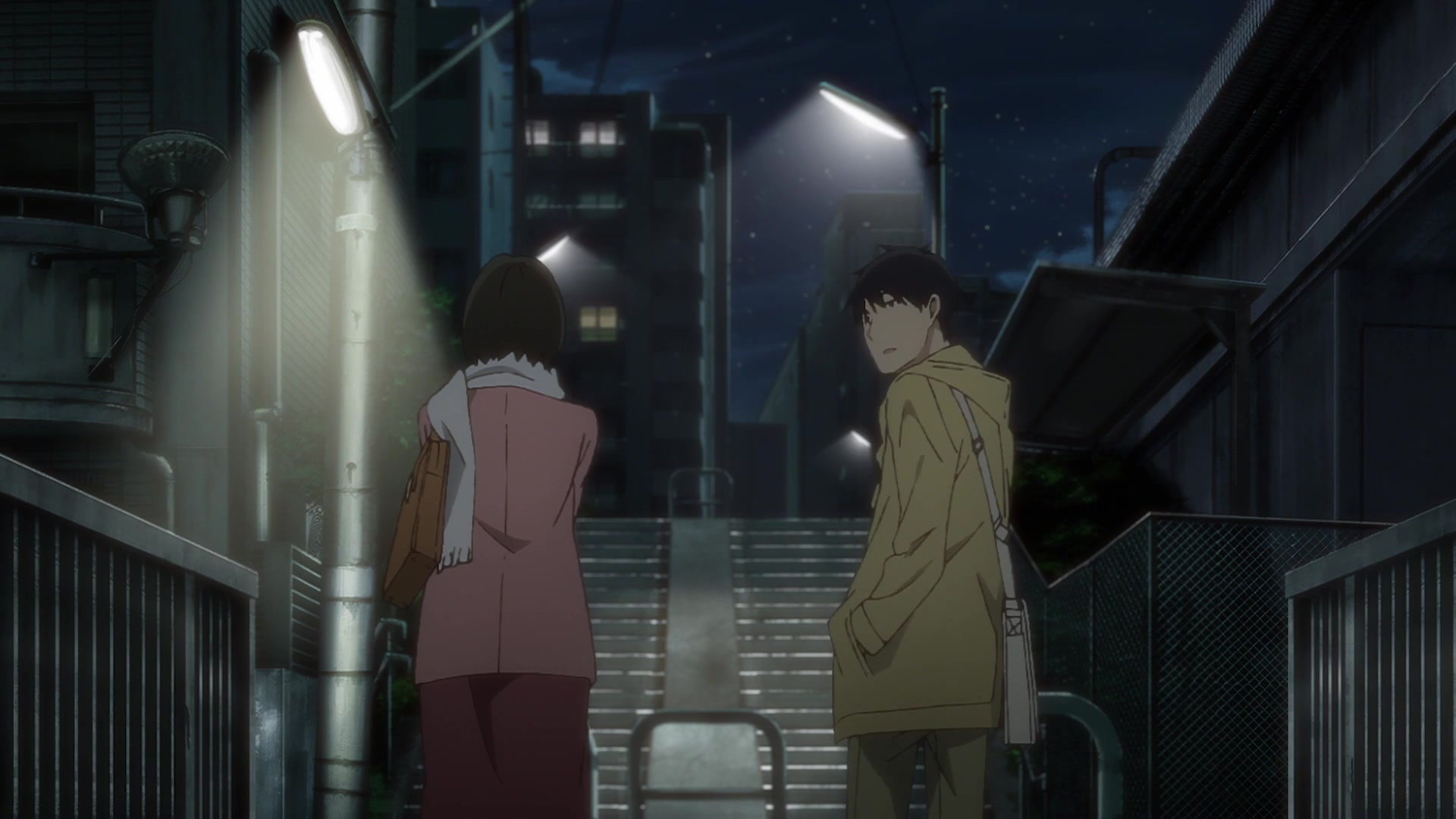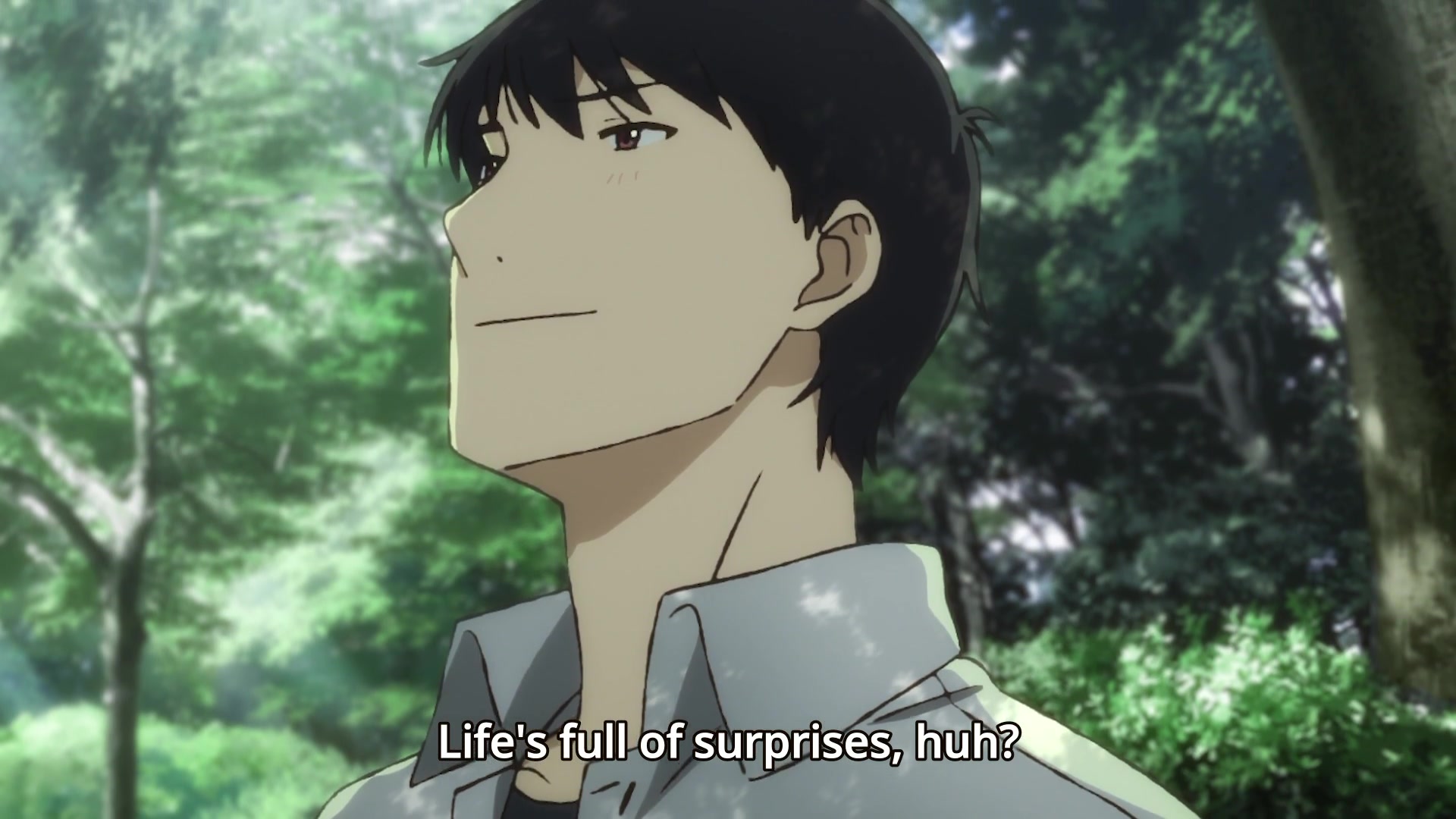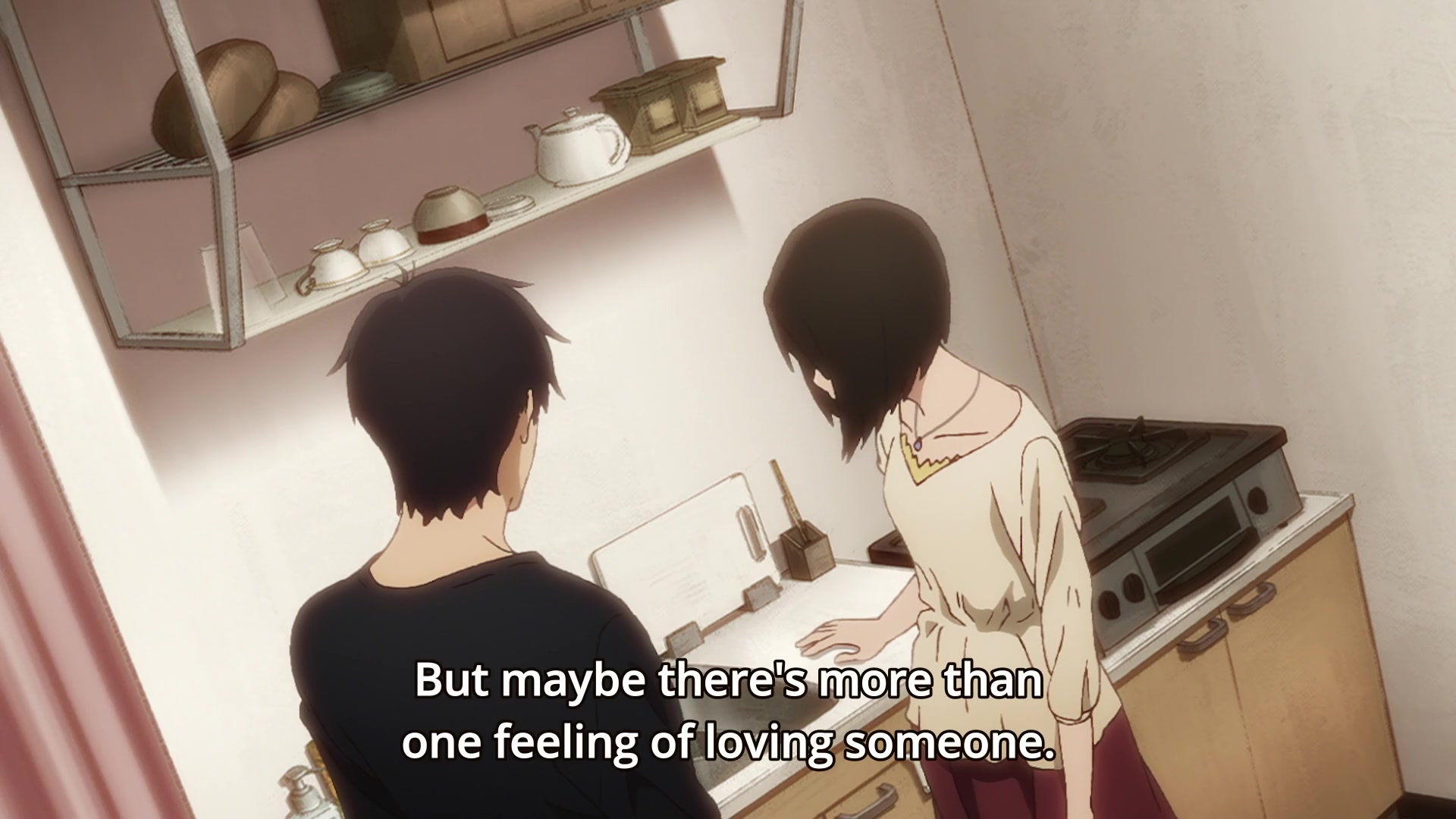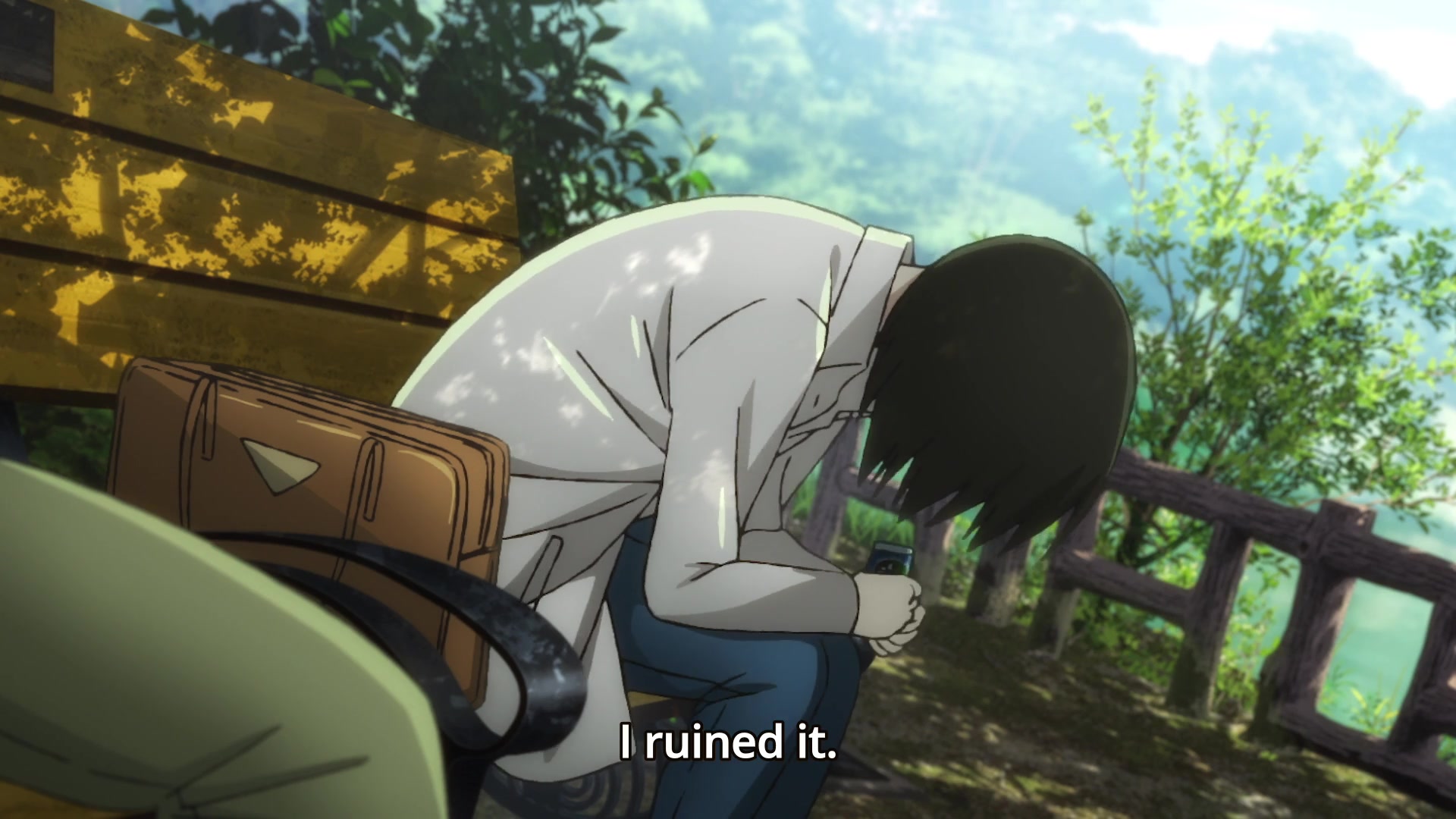The ending of Sing “Yesterday” for Me was a betrayal. I know that sounds dramatic, but allow me to explain.
It concludes with Rikuo falling into the arms of Haru, a girl he barely knew and has shown nothing but disdain for over the course of the series, and with his old flame Shinako knocking on the door of her dead boyfriend’s younger brother, implying that she’s pursuing a doomed relationship with him. It’s sad because up until this point, it felt like Rikuo and Shinako had learnt something from each other: they tried to get together, but eventually realised that there was nothing between them, just two lonely souls searching for a respite from the cold. And just as it felt like they had finally reached a turning point, the epilogue reverts them: Shinako is still trapped in the past, and Rikuo is chasing an immature relationship based almost entirely on Haru’s infatuation with him.
I suppose some people just don’t get to grow.
Maybe that’s the real message of Sing “Yesterday” for Me? That some people just stay broken?
Aesthetic

Sing “Yesterday” for Me is a nostalgic anime. Based on a manga series that began in 1997, it’s set in the era just before the internet took hold and fundamentally changed the world. Isn’t it weirdly reassuring seeing Rikuo and Shinako chained to their home phones, their fingers nervously twiddling about their phone cords? Or everytime Rikuo lights up a cigarette in public, just smoking to chill out. In my opinion, the aesthetic is the best character of Sing “Yesterday” for Me, eliciting the kind of feeling to suggest I’m watching an anime based on a coffee- stained Haruki Murakami novel like Norwegian Wood, a slow and atmospheric wandering through a time and place.
It reminds me a lot of Welcome to the N.H.K., similarly a story of a bunch of young adults so haunted by their pasts that they are scared to take the next step forwards. Rikuo isn’t nearly as broken as Satou, but both find themselves in love with the memory of a girl, only to realise that when they meet the real person, their love was always one sided and empty, a sad trick of nostalgia.
There’s an undeniable sense of ennui about Rikuo and Shinako, a melancholy that bleeds into every scene, be it the blue moonlight as Rikuo throws out the trash, the warm glow of the streetlights as he bumps into Haru, or the flash of a speeding train as it passes Shinako, her head down on her way home from work, there’s something just slow and lonely about Sing “Yesterday” for Me, an overriding feeling of inertia as life just passes by. It’s a story told through what isn’t said.
Being brave enough to fail: Rikuo

It takes a brave person to follow their dreams when it means risking failure. We’re all the greatest in our own minds, but when it comes down to it, a lot of people just never have the wherewithal to try and make something happen. It’s always a half hearted effort and there’s always an excuse for not trying. The Rikuo at the beginning of Sing “Yesterday” for Me is a good example of a half hearted guy that hasn’t given himself a chance because he’s afraid to fail, the part time gigs just another way of delaying the moment when he’s forced to look himself in the mirror and ask what he’s going to do with his life. A lot of stories would climax with him working up the determination to confess to Shinako, but episode 1 ends with him confessing his feelings to her, only to be turned down. It really feels like he’s trying to live with no regrets, knowing that it’s a moment in his life that he’ll regret forever if he doesn’t at least tell her how he feels. That she turns him down should finally give him the impetus to grow and set forth on a new path, but this is where Sing “Yesterday” for Me really begins.
Letting go of the past: Shinako

Like Rikuo, Shinako is a person struggling with inertia. She’s still in love with her long dead boyfriend, but rather than put distance between herself and his family and try to move on, she’s closer to his family now than ever. Rō, her dead boyfriend’s younger brother, is clearly infatuated with her and forcefully pursues a relationship. She knows it’s unhealthy and wrong, and that she’s torturing Rō as much as herself by hanging on, but even still, she can’t seem to bring herself to separate from them. A running theme with Shinako is her lack of decisiveness, and it hurts everyone around her. The phrase “it’s better to be cruel than kind” never applied more to a person. If only she could let go of Rō.
Explaining why the ending of Sing “Yesterday” for Me is a betrayal

The ending of Sing “Yesterday” for Me feels like a betrayal because it concludes on a tone-deaf ostensibly happy note that falls apart the moment you stop to think about it. It never felt like Rikuo loved Haru, just as it never felt like Shinako loved Rō. Both relationships are built on deeply unhealthy foundations: Haru falling in love with Rikuo after bumping into him in the street without knowing anything about him, and Rō wanting to replace his older brother in Shinako’s eyes, something that he can never hope to do. Both relationships seem totally one sided, and characterise the deep sense of emptiness and loss that Rikuo and Shinako both seemed so desperate to escape, yet are apparently doomed to repeat. I just thought Sing “Yesterday” for Me was braver than this.

Leave a Reply